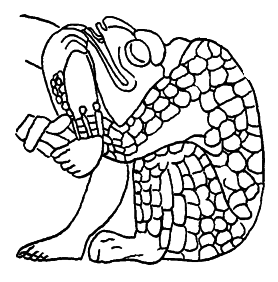●「ファシズム期にお ける日独伊のナショナリズムとインテリジェンスに 関 する人類学史」(中生勝美先生・基盤研究(B)2019年度- 2023年度:19H04363)
この研究は「戦争期におけるインテリジェンスと人類学知」の思想史研究(Intellectual history)であると、私(池田)は位置づけている。
"Intellectual history (also the history of ideas) is the study of the history of human thought and of intellectuals, people who conceptualize, discuss, write about, and concern themselves with ideas. The investigative premise of intellectual history is that ideas do not develop in isolation from the thinkers who conceptualize and apply those ideas; thus the historian of intellect studies ideas in two contexts: (i) as abstract propositions for critical application; and (ii) in concrete terms of culture, life, and history.[1]/ As a field of intellectual enquiry, the history of ideas emerged from the European disciplines of Kulturgeschichte (Cultural History) and Geistesgeschichte (Intellectual History) from which historians might develop a global intellectual history that shows the parallels and the interrelations in the history of critical thinking in every society.[2][3] Likewise, the history of reading, and the history of the book, about the material aspects of book production (design, manufacture, distribution) developed from the history of ideas./ The concerns of intellectual history are the intelligentsia and the critical study of the ideas expressed in the texts produced by intellectuals; therein the difference between intellectual history from other forms of cultural history that study visual and non-verbal forms of evidence. In the production of knowledge, the concept of the intellectual as a political citizen of public society dates from the 19th century, and identifies a man or a woman who is professionally engaged with critical thinking that is applicable to improving society. Nonetheless, anyone who explored his or her thoughts on paper can be the subject of an intellectual history such as The Cheese and the Worms (1976), Carlo Ginzburg’s study of the 16th-century Italian miller Menocchio (1532–1599) and his cosmology, which falls within the genres of cultural history, the history of mentalities, and microhistory.[4]" - Intellectual history.
また、別の見方をすると、軍事的インテリジェンスに組する応用人類学(applied anthropology concerning with military intelligence)の歴史研究でもある。
Applied anthropology; "Applied anthropology is the application of the methods and theory of anthropology to the analysis and solution of practical problems. In Applied Anthropology: Domains of Application, Kedia and Van Willigen define the process as a "complex of related, research-based, instrumental methods which produce change or stability in specific cultural systems through the provision of data, initiation of direct action, and/or the formulation of policy".[1] More simply, applied anthropology is the praxis-based side of anthropological research; it includes researcher involvement and activism within the participating community."-Applied anthropology.
Military intelligence; "Military intelligence is a military discipline that uses information collection and analysis approaches to provide guidance and direction to assist commanders in their decisions.[1] This aim is achieved by providing an assessment of data from a range of sources, directed towards the commanders' mission requirements or responding to questions as part of operational or campaign planning. To provide an analysis, the commander's information requirements are first identified, which are then incorporated into intelligence collection, analysis, and dissemination./ Areas of study may include the operational environment, hostile, friendly and neutral forces, the civilian population in an area of combat operations, and other broader areas of interest.[2] Intelligence activities are conducted at all levels, from tactical to strategic, in peacetime, the period of transition to war, and during a war itself./ Most governments maintain a military intelligence capability to provide analytical and information collection personnel in both specialist units and from other arms and services. The military and civilian intelligence capabilities collaborate to inform the spectrum of political and military activities./ Personnel performing intelligence duties may be selected for their analytical abilities and personal intelligence before receiving formal training." - Military intelligence.
1930年代から40年代ならびに戦後処理期の人類 学史を、日独伊に焦点をあてて研究する。
| 現段階(2019年度)での池田による評価 |
日 |
独 |
伊 |
| 1. ナショナリズム:民族意識の高揚に自国の人類学を活用したか? |
|
|
|
| 2.
インテリジェンス:対敵分析や宣伝のため、人類学者をいかに利用していたか? |
|
|
|
| 3.
科学的レイシズム:人類学理論は、科学的レイシズムとどのような関係をもったか? |
|
|
|
「日独伊の三カ国の戦時中の人類学を比較検討するこ とを通じて、総力戦が人類学に与えた影響、戦後の人類学との連続性、政治とアカデミズムの緊張関係、さらに人類学者の研究活動が、いかに戦争遂行に関係し ていたかを、「三角測量(トライアンギュレーション)」の手法で描き出す」中生申請書より)
「1930年代から40年代のファ
シズム期と戦後処理の時期の人類学史を、軍事同盟を締結した日本・ドイツ・イタリア(日独伊)に焦点を当てて、本国でのナショナリズムの高揚、および連合
軍からのインテリジェンス活動がいかに人類学研究に影響を与えたかを検討する。1)ナショナリズムについては、日独伊が民族意識の高揚に自国の人類学を活
用したかを比較検討する。2)
インテリジェンスについては、アメリカ・イギリスが日独伊への対敵分析や宣伝のため、人類学者をいかに利用していたかをアーカイブの整備とオーラルヒスト
リーで再検討し、ファシズム期の人類学が、いかに戦後に結び付いたかを新たな角度で検証」する(出典:https://kaken.nii.ac.jp/grant/KAKENHI-PROJECT-19H04363/)。
「ドイツ研究班のうち池田光穂(研究分担者)は、ナ チハンティング、優生学に関して論文を用意しており、中生と共同してベルリンでの調査、および単独でイスラエルでの調査を実施する」同上)
■明らかにしなければならないこと
| ■明らかにしなければならないこと(2020年度末での課題) | 日 |
独 |
伊 |
| 1. ファシズム期にお ける行政機構の比較 | |||
| 2. ファシズム期における文化人類学(民族学)とアカデミズムの関係:また、それらのパラダイム上の位相 | |||
| 3. ファシズム期におけるの文化人類学(民族学)ひいてはアカデミズムと社会との関係:その社会史との関係 |
|||
| 4. 総力戦状態のなかで、(i)総力戦が人類学に与えた影響、(ii)人類学を含む学問が総力戦全体に与えた影響 |
●2019年度の研究分担者(池田)の研究報告
1.予算(省略)
2.令和元(2019)年度調査の概要
(1)期間:2019年12月26日〜2020年1 月2日(メキシコシティ←→ブエノスアイレス)
アルゼンチン・ブエノスアイレスに滞在しユダヤ人移 民支援組織ならびに戦争犯罪人移送ネットワークに関する聞き取り調査と二次資料文献収集。
(2)期間:2020年1月18日〜2020年1月 26日(関西空港←→テルアビブ)
エルサレム・ヤド・ヴァシェム博物館(ホコロースト 記念館)にてナチス戦争犯罪にかかわる医学研究における優生学と人種改造研究と戦後の生命倫理学研究におけるその評価に関する資料収集。戦後イスラエル・ シオニズム運動とアルゼンチン移民の聞き取り。
3.令和元(2019)年度研究の概要
年度当初は、大戦間期のナチスの優生学研究とユダ
ヤ人虐殺関係についてベルリンとエルサレム調査を計画立案した。しかし、アウシュヴィッツのナチスSS将校ヨーゼフ・メンゲレ(1911-1979)の戦
後のアルゼンチンでの生活における、リアル・オデッサとよばれるナチ戦争犯罪移送ルートに関心を持ち続け、研究を続けるうちに、同時に大戦間期ならびに第
二次大戦後を通してアルゼンチンはユダヤ人入植地が発達したためにナチの人種政策における「敵(=被害者民族)」と「味方(=加害民族)」における民族的
差異の人種科学的差異への「パラダイム・チェインジ」に関心が移行した。そのために、本研究費(部分)を使って、2019年12月アルゼンチン・ブエノス
アイレスにおいてブエノスアイレス・リベルタード・シナゴーグならびに併設博物館を訪問し、ユダヤ人移民支援組織ならびに戦争犯罪人移送ネットワーク
("real
odessa"ルート)に関する聞き取り調査と二次資料文献を収集した。2020年1月エルサレム・ヤド・ヴァシェム博物館(ホコロースト記念館)にてナ
チス戦争犯罪にかかわる医学研究における優生学と人種改造研究("Lebensborn")と戦後の生命倫理学研究におけるその評価に関する資料収集。戦
後イスラエル・シオニズム運動とアルゼンチン移民について簡単な聞き取りをおこなった。不足分の研究費については、大阪大学COデザインセンターの研究推
進室経費から補填していただいた。
●アウシュヴィッツ関係のサイト内リンク
●2020年度の研究成果の中間報告
1.論文の公刊
軍事的インテリジェンスという用語は第二次大戦後に 広く世界に膾炙するが、その起源はそれ以前の連合国ならびに枢軸国と呼ばれる国々ですでに1920年代末から始まっていた。本稿は、軍事的インテリジェン スと当時それらの地域で研究が本格化する民族学(文化人類学)との倫理的な関係について論じる。それらの関係は「協働」という言葉で表現することができ、 (i)積極的協力、(ii)相反あるいは矛盾する協力、(iii)価値中立的関与、という3つの関係に整理できる。これらの関係性の検討のため、将来にお ける具体的な研究課題として「ペーパークリップ作戦」(米軍によるナチ科学者のリクルートと戦争犯罪免責)と「オデッサ」(正体不明の戦犯ナチ移送支援組織)を紹介、分析する。戦争の苛烈な現実に我々が直面した際に「科学がもつ冷徹さ」と「道徳的かき乱し」との間の認識論的混乱を避けるために、この研究分野の倫理的-法的-社会的連累(ELSI)の検討が急務であることを指摘した。
The word and concept of military intelligence (MI), has appeared from the end of the World WarII even though actual operations of military intelligence among both the Allies and the Axis had started from end of 1920s. In this paper the author challenges to establish theoretical framework of the relations between military intelligence and ethnological knowledge in not only the time of those days but the present time. For clearing our mind set on "collaborations" between war operations and ethnological knowledge, the author classified three types of collaboration; (i) Positive collaboration, (ii) Oxymoronic coloration or Contradictive collaboration, and (iii) Neutral or Value-free collaboration. In the last section of this paper for scrutinizing in future research, the author indicated and exemplified two research subjects, the Operation Paperclip that U.S military had recruited ex-Nazi scientists for developing of post-war military sciences and the ODESSA connection of the ex-Nazi war criminals transferring to New World continent. To avert epistemological confusion between amoral intelligent facts and our moral disturbance of confronting with warfare atrocities, we need urgent establishment of academic arena where scientists can talk on anthropology of MI from the perspective of the Ethical, Legal, and Social Implications (ELSI).
池田光穂「軍事的インテリジェンスの人類学の射程と倫理」CO*Design 8:1-17, 2020. info:doi/10.18910/77264 http://hdl.handle.net/11094/77264
2.琉球遺骨返還運動へのコミットメント
「金関丈夫と琉球の人骨」と「遺骨や副葬品を取り戻しつつある先住民のための試論」において、自然人類学(形質人類学)における遺骨収集における(定められている以前の)研究倫理違反に該当するような事例と遭遇。現時点での課題は、返還請求に大学や博物館がどのように答えるのかという政治的・政策的課題のほかに、研究者は倫理的-法的-社会的連累(ELSI)の課題について考える時期にきている。
Ikeda, Mitsuho (2020)
Repatriation of human remains and burial materials of Indigenous
peoples in Japan : Who owns their cultural heritages and dignity?
CO*Design 7:1-16. https://ir.library.osaka-u.ac.jp/repo/ouka/all/75574/cod_07_001.pdf
関連業績
ウェブページ
- ◎優生学の現代
- History_Eugenics.html
- ◎ナチスの「生命の泉」計画と優生学
- Lebensborn_nazi.html
- ◎ヨーゼフ・メンゲレ
- Josef_Mengele.html
- ◎アルゼンチンにおけるユダヤ人/イスラエルにおけるアルゼンチン系ユダヤ人
- jewinargentina.html
- ファシズム体制下におけるインテリジェンスと人類学・民族学
著作
- 池田光穂『病む』山中浩司・石蔵文信編、大阪大学出版会(担当箇所「第3章病むことの多様性と治ることの斉一性」Pp.47-62)ISBN 978-4872596229、270pp., 2020年3月
論文
- 岡崎洋三・池田光穂「本多勝ーと山口昌男の噛み合わない論争:1970年の文化人類学と報道ジャーナリズム」、CO*Design, 6:13-32, 2019年8月 doi.org/10.18910/73010
学会発表
- - IKEDA, Mitsuho. Repatriation of human remains and burial materials: Who owns cultural heritage and dignity? The Spring meeting of the Korean Society of Cultural Anthropology, Seoul National University, Seoul, South Korea, April 26, 2019.
- - IKEDA, Mitsuho. "Spirituality and Materiality among Human Remains--Reflection from repatriation activism of the Ainu and the Ryukyu" Mitsuho IKEDA, テーマセッション「再帰的近代における宗教と社会・個人」(座長:安達智史)、第92回日本社会学会大会(東京都杉並区)[英語による発表]、2019年 10月5日
- - IKEDA, Mitsuho. “Stealing remains is criminal”: Ethical, Legal, and Social Issues of the Repatriation of Remains to Ryukyu Islands, southern Japan. Mitsuho Ikeda (Osaka University) in "HARKENING VOICES OF THE OTHER: ETHICS AND STRUGGLES FOR REPATRIATION OF HUMAN REMAINS ON THE MARGINS OF JAPAN"(5-1140) Annual Meeting of American Anthropological Association, November 24, 2019. Vancouver, Canada.
- - 池田光穂、霊性と物質性:アイヌと琉球の遺骨副葬品返還運動から、第三回豊中地区研究交流会(大阪大学基礎工学部シグマホール)2019年12月17日
リンク
- Military intelligence
- 防諜(Counterintelligence)
- Strategic intelligence
- Densho Encyclopedia, A free on-line resource about the history of the Japanese American WWII exclusion and incarceration experience.
- Prof. Dr. Reinhard Johler - Deputy Director, Institute of Historical and Cultural Anthropology, Universitat Tubingen
- アンニバーレ・ザンパルビエーリ University of Pavia
- David
Price - professor of anthropology at St. Martin's University in
Lacey,
文献
- Chamayou, Grégoire (2013) Théorie du drone. Paris: Fabrique.
- チョムスキー,ノーム(1981)河村望(訳)『知識人と国家』ティビーエス・ブリタニカ. (→INTELLECTUALS AND THE
STATE (1977), by Noam Chomsky)
- Clausewitz, Carl von (1832) Vom kriege. Berlin.
=(1968)篠田英雄(訳)『戦争論』岩波書店.
- Clifford, James (1988)The predicament of culture:
twentieth-century ethnography, literature, and art. Cambridge, Mass.:
Harvard University Press. = (2003) 太田好信ほか(訳)『文化の窮状 :
二十世紀の民族誌、文学、芸術』人文書院.
- Durkheim, Emile(1894) Les règles de la méthode sociologique.
Paris: Les Presses universitaires de France =(1978)
宮島喬(訳)『社会学的方法の規準』岩波書店
- Evans-Pritchard, E.E. (1954) The Sanusi of Cyrenaica. Oxford:
Oxford University Press.
- Forsyth, Frederick (1973) The Odessa file. London: Corgi Books.
- Geertz, Clifford (1974) Interpretation of Cultures. New York:
Basic Books.
- Gorer, Geoffrey and John Rickman (1962) The people of great
Russia: a psychological study. New York: W.W. Norton.
- Goñi, Uki (2003) The real Odessa: how Perón brought the Nazi
war criminals to Argentina. London: Granta Books.
- ヘッドリク,ダニエル(2011)塚原東吾・隠岐さや香(訳)『情報時代の到来』法政大学出版局.
- Hymes, Dell ed.,(1972) Reinventing Anthropology. New York:
Pantheon Books.
- Huntington, Samuel P.(1996) The clash of civilizations and the
remaking of world order. New York: Simon & Schuster.
=(1998)鈴木主税(訳)『文明の衝突』集英社.
- Huntington, Samuel P.(1968,2006) Political Order in Changing
Societies. New Haven: Yale University Press.
- 池田光穂a(Online)「ペーパークリップ作戦」operation_paperclip.html
(2020年2月29日閲覧)
- 池田光穂b(Online)「ニュルンベルク医学裁判」Arzteprozess_1946-1947.html
(2020年2月29日閲覧)
- 池田光穂c(Online)「ジジェク教授による厄介な多文化主義批判」16-ticklish_multi-culturalism.html
(2020年2月29日閲覧)
- 池田光穂d(Online)「『文化』概念の検討:連続講義」050228portal.htmll
(2020年2月29日閲覧)
- 池田光穂e(Online)「道徳企業家」121031MoralEntreprene.html
(2020年2月29日閲覧)
- 池田光穂・編(2012)『コンフリクトと移民:新しい研究の射程』大阪大学出版会.
- Jacobsen, Annie (2014) Operation paperclip : the secret
intelligence program that brought Nazi scientists to America. NY:
Little, Brown and Company. = (2015) 加藤万里子(訳)『ナチ科学者を獲得せよ! 』太田出版.
- Jacobsen, Annie (2014) Area 51 : an uncensored history of
America's top secret military base. London: Orion.= (2012)
田口俊樹(訳)『エリア51 世界でもっとも有名な秘密基地の真実』太田出版.
- Jacobsen, Annie (2016) The Pentagon's brain : an uncensored
history of DARPA, America's top secret military research agency. New
York: Back Bay Books =(2017) 加藤万里子(訳)『ペンタゴンの頭脳:世界を動かす軍事科学機関DARPA』太田出版.
- Jomini, Antoine Henri (1811) Traité des grandes opérations
militaires. Paris: 2e éd, accompagnée d'un atlas militaire, augmenté de
cartes et plans de batailles. = (2001)佐藤徳太郎(訳)『戦争概論』中央公論新社.
- 金谷治(校訂)(2000)『新訂 孫子』岩波書店.
- Kjellen, Rudolf (1917) Der Staat als Lebensform. Leipzig.
=(1943)金生喜造(訳)『領土・民族・国家』三省堂.
- Lapsley, Hilary. (1999). Margaret Mead and Ruth Benedict: The
Kinship of Women. University of Massachusetts Press
- Leach, E.R. (1954) Political Systems of Highland Burma: A study
of Kachin social structure. Boston: Beacon Press.
- Lipset, David (1982) Gregory Bateson: the Legacy of a
Scientist. Boston: Beacon Press.
- マンハイム,カール(1968) 鈴木二郎(訳)『イデオロギーとユートピア』未来社.
- Mattern, Johannes (1942) Geopolitik : doctrine of national
self-sufficiency and empire. Baltimore: Johns Hopkins Press.
- Meyer, Erin (2014) The Culture Map: Breaking Through the
Invisible Boundaries of Global Business. New York.
- Moreno, Jonathan (2006) Mind wars: Brain research and national
defense. New York: Dana Press.= (2008) 西尾香苗(訳)『操作される脳』アスキー・メディアワークス.
- モリス=スズキ,テッサ(2002)『批判的想像力のために:グローバル化時代の日本』平凡社.
- 中生勝美(2016)『近代日本の人類学史:帝国と植民地の記憶』風響社.
- 日本パグォッシュ会議(Online) https://www.pugwashjapan.jp/ (2020年2月29日閲覧)
- Pinker, Steven A.(2011)The Better Angels of Our Nature: why
violence has declined . London:Penguin.= (2015)
幾島幸子・塩原通緒(訳)『暴力の人類史』青土社.
- Sahlins, Marchall D.(1976) Culture and practical reason.
Chicago: University of Chicago Press.
- Said, Edward W.(1978) Orientalism. New York: Vintage Books. =
(1993)今沢紀子(訳)『オリエンタリズム』平凡社.
サーイド,エドワード(1998) 大橋洋一(訳)『文化と帝国主義1』みすず書房.
- 笹本征男(1995)『米軍占領下の原爆調査』新幹社.
- スピヴァック,ガヤトリ(1992) 清水和子・崎谷若菜(訳)『ポスト植民地主義の思想』彩流社.
- Stangneth, Bettina(2011) Eichmann Before Jerusalem: The
Unexamined Life of a Mass Murderer. New York: Vintage.
- Weart , Spencer R. and Gertrud Weiss Szilard(1978) Leo Szilard,
his version of the facts: selected recollections and correspondence.
Cambridge, Mass.: MIT Press =(1982)伏見康治・伏見諭(訳)『シラードの証言』みすず書房.
- ヴィーゼンタール,サイモン(1998) 下村由一・山本達夫(訳)『ナチ犯罪人を追う:S・ヴィーゼンタール回顧録』時事通信社.
- Wright Mills, C.(1956) The Power Elite. Oxford: Oxford
University Press.
- 米本昌平(1998)『知政学のすすめ:科学技術文明の読みとき』中央公論社.
- Žižek, Slavoj(2000) The ticklish subject: the absent center of
political ontology, London: Verso 2000.=(2005)
鈴木俊弘・増田久美子(訳)『厄介なる主体:政治的存在論の空虚な中心』青土社.
リンク
リンク(スポンサー)
リンク
文献(中生勝美)
文献
- Drones and responsibility : legal, philosophical and sociotechnical perspectives on remotely controlled weapons / edited by Ezio Di Nucci and Filippo Santoni de Sio, Routledge , 2016.
- Doing anthropology in wartime and war zones : World War I and the cultural sciences in Europe / Reinhard Johler, Christian Marchetti, Monique Scheer, (eds.), Transcript , 2010
- Office
of War Information, from Densho Encyclopedia
その他の情報
Copyleft, CC, Mitzub'ixi Quq Chi'j, 1996-2099



